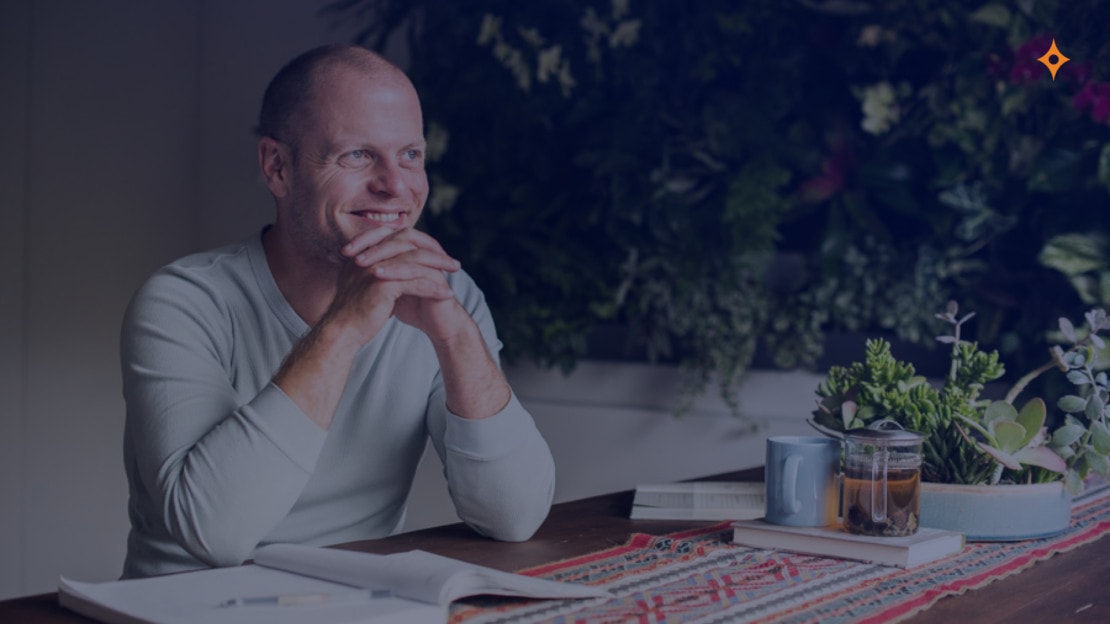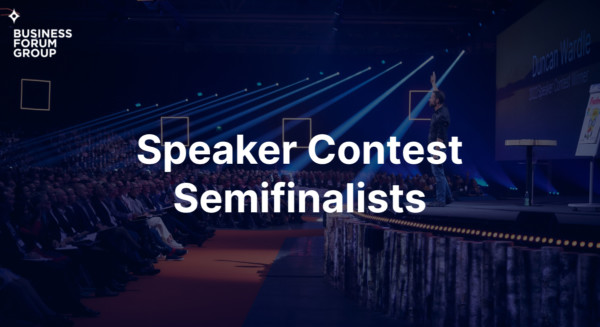9Feb2023
Tim Ferriss has been listed as one of Fast Company’s “Most Innovative Business People” and one of Fortune’s “40 under 40.” He is an early-stage technology investor/advisor (Uber, Facebook, Shopify, Duolingo, Alibaba, and 50+ others) and the author of five #1 New York Times and Wall Street Journal bestsellers, including The 4-Hour Workweek and Tools of Titans: The Tactics, Routines, and Habits of Billionaires, Icons, and World-Class Performers. The Observer and other media have called Tim “the Oprah of audio” due to the influence of The Tim Ferriss Show podcast, which is the first business/interview podcast to exceed 100 million downloads. It has now exceeded 900 million downloads.
Tim will be joining us at Nordic Business Forum 2023 in September for a Discussion on Productivity and Innovation. We reached out to him to ask some questions related to our theme and the upcoming discussion.
Our theme for this year’s Nordic Business Forum is Be:Change. With this theme, we want to encourage the leaders of the world to take action and create and lead change in the world rather than just trying to survive and manage it.
What are some changes you hope to see in the world in the next 5-10 years?
Tim Ferriss: “Among many other things, I would love to see more experiments with Universal Basic Income, more systems in place to counteract regulatory capture, more distribution of entertainment production outside of Hollywood (much like tech has expanded outside of Silicon Valley), and legal reclassification of select psychedelic compounds in the US and elsewhere for therapeutic use in cases of treatment-resistant depression, complex PTSD, etc.”
What upcoming technological innovations are you excited about?
Tim: “Right now, AI is top of mind. Even AI researchers couldn’t and wouldn’t have predicted how quickly tools like DALL-E, ChatGPT, Midjourney, Stable Diffusion, Riffusion (for music), and dozens of others would change the landscape of entire industries. Things are going to get very wild very quickly, and if you want to be a beneficiary of AI instead of its victim, you must pay attention to these technologies and get familiar with the tools.”
One of our subthemes this year is resilience, something we all need during these turbulent times. Fortunately, resilience is like a muscle you can train, but it takes practice and discipline.
What do you think are the most important habits for people who wish to develop resilience?
Tim: “Four come to mind: regular resistance training, fear-setting exercises, daily meditation (20 minutes x 2 sessions is enough), and perhaps Dialectic Behavioral Therapy (DBT).”
Resistance training is a sure way to develop your “resilience muscle,” as well as your other muscles. Regular exercise helps to balance stress hormones and keep your brain and body healthy. Fear-setting exercises are something Tim uses in his own daily life, and he mentioned them again later in the interview. You can also read about Tim’s approach to dealing with fear and the exercises he uses on his blog.
Meditation has been shown to have several health benefits, such as reducing stress and anxiety. Practicing meditation frequently can help to fight chronic stress – a sure way to increase resilience. Dialectic Behavioural Therapy is a type of therapy designed to help people manage intense and difficult emotions. Again, a great way to increase resilience through learning how to accept and cope with negative emotions that may arise during intense periods of stress.
Tim is someone many look up to as an inspiration for living life to the fullest and making dreams come true. Reaching for your dreams does not come without risks, so of course.
How do you deal with the fear of failure?
Tim: “I view all experimental outcomes as feedback, never failure. That frame is #1. Second, I use fear-setting exercises extensively, which people can find at tim.blog/ted. Third, I view my life as a series of six-month projects and, within each of those, many two-week experiments. So my experiments are well-defined and iterated quickly, and the tight feedback loop tends to result in long-term wins. Nothing is totally fool-proof or fortune-proof, but this has worked well for me, and Scott Adams, the creator of Dilbert, has written a lot about similar strategies.”
Great point, Tim. When you view reaching for your goals as an experiment, you switch the focus from failing or succeeding to learning. Setting shorter timelines for projects and goals helps you to get feedback quickly, learn, and improve for next time!
We look forward to hearing more of Tim’s thoughts on building resilience and optimizing performance during the discussion in Helsinki this September!
PS. If you don’t have your tickets to Nordic Business Forum 2023 yet, you can get them here.


